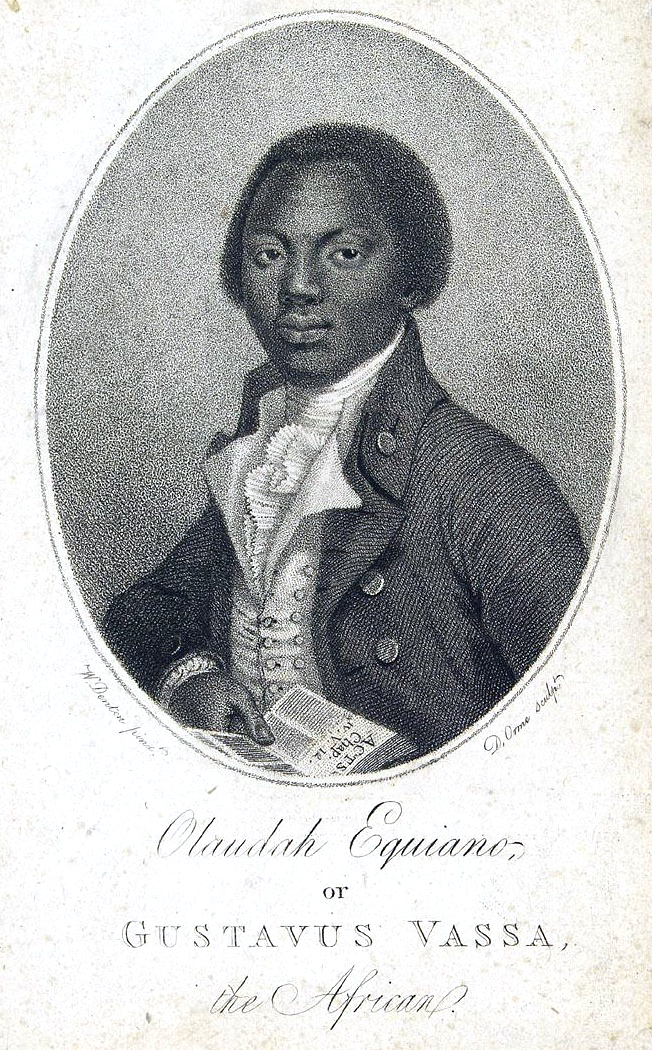|
El Paso, Arkansas
El Paso is an unincorporated community and census-designated place (CDP) in southwestern White County, Arkansas, United States. It was first listed as a CDP in the 2020 census with a population of 267. Its name is Spanish for "the pass", referring to a small gap in the hills on the community's northern edge. Once known as Peach Orchard Gap in its early settlement, the origin of El Paso's Spanish name is unknown. History The historic Southwest Trail, a path used by most travelers entering Arkansas early in the 1800s, entered El Paso on today's Arkansas Highway 5 from Floyd, then headed to Gibson via Arkansas Highway 89, Tate's Mill Road and Batesville Pike Road. By the 1830s more than 80 percent of the Arkansas territory's population had entered through the Southwest Trail. The route is also known as the Old Military Road. Geography The center of El Paso is located at 35.13, -92.10. Much of the community is situated along Bull Creek, and along Arkansas State Highway 5 and U.S ... [...More Info...] [...Related Items...] OR: [Wikipedia] [Google] [Baidu] |
Census-designated Place
A census-designated place (CDP) is a concentration of population defined by the United States Census Bureau for statistical purposes only. CDPs have been used in each decennial census since 1980 as the counterparts of incorporated places, such as self-governing cities, towns, and villages, for the purposes of gathering and correlating statistical data. CDPs are populated areas that generally include one officially designated but currently unincorporated community, for which the CDP is named, plus surrounding inhabited countryside of varying dimensions and, occasionally, other, smaller unincorporated communities as well. CDPs include small rural communities, edge cities, colonias located along the Mexico–United States border, and unincorporated resort and retirement communities and their environs. The boundaries of any CDP may change from decade to decade, and the Census Bureau may de-establish a CDP after a period of study, then re-establish it some decades later. Most unin ... [...More Info...] [...Related Items...] OR: [Wikipedia] [Google] [Baidu] |
Vilonia, Arkansas
Vilonia is a city in Faulkner County, Arkansas, United States. Its population was 3,815 at the 2010 census, up from 2,106 at the 2000 census. It is part of the Little Rock–North Little Rock North Little Rock is a city in Pulaski County, Arkansas, across the Arkansas from Little Rock in the central part of the state. The population was 64,591 at the 2020 census. In 2019 the estimated population was 65,903, making it the seventh-mo ...–Conway, Arkansas, Conway Little Rock-North Little Rock-Conway metropolitan area, Metropolitan Statistical Area. History Vilonia was first settled in 1861 as Vilsonia. By 1870, a Cotton gin, cottin gin, a gristmill, general stores, and a drug store was in Vilonia. In 1873, a error caused the town name to be changed to Vilonia. In 1874, the first schoolhouse was built on what is now U.S. Route 64, U.S. Highway 64. In 1879, the first post office was established. In 1887, a blacksmith shop was opened. In 1905, the Arkansas Holiness College was ... [...More Info...] [...Related Items...] OR: [Wikipedia] [Google] [Baidu] |
Hispanic And Latino Americans
Hispanic and Latino Americans ( es, Estadounidenses hispanos y latinos; pt, Estadunidenses hispânicos e latinos) are Americans of Spanish and/or Latin American ancestry. More broadly, these demographics include all Americans who identify as Hispanic or Latino regardless of ancestry.Mark Hugo Lopez, Jens Manuel Krogstad and Jeffrey S. PasselWho Is Hispanic? Pew Research Center (November 11, 2019). As of 2020, the Census Bureau estimated that there were almost 65.3 million Hispanics and Latinos living in the United States and its territories (which include Puerto Rico). "Origin" can be viewed as the ancestry, nationality group, lineage or country of birth of the person or the person's parents or ancestors before their arrival in the United States of America. People who identify as Hispanic or Latino may be of any race. As one of the only two specifically designated categories of ethnicity in the United States (the other being "Not Hispanic or Latino"), Hispanics and Latinos f ... [...More Info...] [...Related Items...] OR: [Wikipedia] [Google] [Baidu] |
Multiracial Americans
Multiracial Americans are Americans who have mixed ancestry of two or more races. The term may also include Americans of mixed race ancestry who self-identify with just one group culturally and socially (cf. the one-drop rule). In the 2010 United States census, approximately 9 million individuals or 3.2% of the population, self-identified as multiracial. There is evidence that an accounting by genetic ancestry would produce a higher number. Historical reasons are said to have created a racial caste such as the European-American suppression of Native Americans, often led people to identify or be classified by only one ethnicity, generally that of the culture in which they were raised.Gates, Henry Louis, Jr. ''Faces of America: How 12 Extraordinary Americans Reclaimed Their Pasts'' (New York University Press, 2010) Prior to the mid-20th century, many people hid their multiracial heritage because of racial discrimination against minorities. While many Americans may be considered mult ... [...More Info...] [...Related Items...] OR: [Wikipedia] [Google] [Baidu] |
Race And Ethnicity In The United States Census
Race and ethnicity in the United States census, defined by the federal Office of Management and Budget (OMB) and the United States Census Bureau, are the self-identified categories of race or races and ethnicity chosen by residents, with which they most closely identify, and indicate whether they are of Hispanic or Latino origin (the only categories for ethnicity). The racial categories represent a social-political construct for the race or races that respondents consider themselves to be and, "generally reflect a social definition of race recognized in this country." OMB defines the concept of race as outlined for the U.S. census as not "scientific or anthropological" and takes into account "social and cultural characteristics as well as ancestry", using "appropriate scientific methodologies" that are not "primarily biological or genetic in reference." The race categories include both racial and national-origin groups. Race and ethnicity are considered separate and distin ... [...More Info...] [...Related Items...] OR: [Wikipedia] [Google] [Baidu] |
Pacific Islander Americans
Pacific Islander Americans (also known as Oceanian Americans) are Americans who are of Pacific Islander ancestry (or are descendants of the indigenous peoples of Oceania or of Austronesian descent). For its purposes, the United States census also counts Indigenous Australians as part of this group. Pacific Islander Americans make up 0.5% of the U.S. population including those with partial Pacific Islander ancestry, enumerating about 1.4 million people. The largest ethnic subgroups of Pacific Islander Americans are Native Hawaiians, Samoans, Chamorros, Fijians, Marshalleses, Tongans, and Tahitians. American Samoa, Guam, and the Northern Mariana Islands are insular areas (U.S. territories), while Hawaii is a state. History First stage: Hawaiian migration (18th-19th centuries) Migration from Oceania to the United States began in the last decade of the 18th century, but the first migrants to arrive in the country were natives of Hawaii. People from other Oceanian backgro ... [...More Info...] [...Related Items...] OR: [Wikipedia] [Google] [Baidu] |
Asian Americans
Asian Americans are Americans of Asian ancestry (including naturalized Americans who are immigrants from specific regions in Asia and descendants of such immigrants). Although this term had historically been used for all the indigenous peoples of the continent of Asia, the usage of the term "Asian" by the United States Census Bureau only includes people with origins or ancestry from the Far East, Southeast Asia, and the Indian subcontinent and excludes people with ethnic origins in certain parts of Asia, including West Asia who are now categorized as Middle Eastern Americans. The "Asian" census category includes people who indicate their race(s) on the census as "Asian" or reported entries such as "Chinese, Indian, Filipino, Vietnamese, Indonesian, Korean, Japanese, Pakistani, Malaysian, and Other Asian". In 2020, Americans who identified as Asian alone (19,886,049) or in combination with other races (4,114,949) made up 7.2% of the U.S. population. Chinese, Indian, and Filip ... [...More Info...] [...Related Items...] OR: [Wikipedia] [Google] [Baidu] |
Alaska Native
Alaska Natives (also known as Alaskan Natives, Native Alaskans, Indigenous Alaskans, Aboriginal Alaskans or First Alaskans) are the indigenous peoples of Alaska and include Iñupiat, Yupik, Aleut, Eyak, Tlingit, Haida, Tsimshian, and a number of Northern Athabaskan cultures. They are often defined by their language groups. Many Alaska Natives are enrolled in federally recognized Alaska Native tribal entities, who in turn belong to 13 Alaska Native Regional Corporations, who administer land and financial claims. Ancestors of Native Alaskans or Alaska Natives migrated into the area thousands of years ago, in at least two different waves. Some are descendants of the third wave of migration, in which people settled across the northern part of North America. They never migrated to southern areas. For this reason, genetic studies show they are not closely related to native peoples in South America. Alaska Natives came from Asia. Anthropologists have stated that their journey from ... [...More Info...] [...Related Items...] OR: [Wikipedia] [Google] [Baidu] |
Native Americans In The United States
Native Americans, also known as American Indians, First Americans, Indigenous Americans, and other terms, are the Indigenous peoples of the mainland United States ( Indigenous peoples of Hawaii, Alaska and territories of the United States are generally known by other terms). There are 574 federally recognized tribes living within the US, about half of which are associated with Indian reservations. As defined by the United States Census, "Native Americans" are Indigenous tribes that are originally from the contiguous United States, along with Alaska Natives. Indigenous peoples of the United States who are not listed as American Indian or Alaska Native include Native Hawaiians, Samoan Americans, and the Chamorro people. The US Census groups these peoples as " Native Hawaiian and other Pacific Islanders". European colonization of the Americas, which began in 1492, resulted in a precipitous decline in Native American population because of new diseases, wars, ethni ... [...More Info...] [...Related Items...] OR: [Wikipedia] [Google] [Baidu] |
Non-Hispanic Or Latino African Americans
African Americans (also referred to as Black Americans and Afro-Americans) are an ethnic group consisting of Americans with partial or total ancestry from sub-Saharan Africa. The term "African American" generally denotes descendants of enslaved Africans who are from the United States. While some Black immigrants or their children may also come to identify as African-American, the majority of first generation immigrants do not, preferring to identify with their nation of origin. African Americans constitute the second largest racial group in the U.S. after White Americans, as well as the third largest ethnic group after Hispanic and Latino Americans. Most African Americans are descendants of enslaved people within the boundaries of the present United States. On average, African Americans are of West/Central African with some European descent; some also have Native American and other ancestry. According to U.S. Census Bureau data, African immigrants generally do not self-ide ... [...More Info...] [...Related Items...] OR: [Wikipedia] [Google] [Baidu] |
Non-Hispanic Or Latino Whites
Non-Hispanic whites or Non-Latino whites are Americans who are classified as "white", and are not of Hispanic (also known as "Latino") heritage. The United States Census Bureau defines ''white'' to include European Americans, Middle Eastern Americans, and North African Americans. Americans of European ancestry represent ethnic groups and more than half of the white population are German, Irish, Scottish, English , Italian , French and Polish Americans. In the United States, this population was first derived from English (and, to a lesser degree, French) settlement of the America, as well as settlement by other Europeans such as the Germans and Dutch that began in the 17th century (see History of the United States). Continued growth since the early 19th century is attributed to sustained very high birth rates alongside relatively low death rates among settlers and natives alike as well as periodically massive immigration from European countries, especially Germany, Ireland, ... [...More Info...] [...Related Items...] OR: [Wikipedia] [Google] [Baidu] |
US Census Bureau
The United States Census Bureau (USCB), officially the Bureau of the Census, is a principal agency of the U.S. Federal Statistical System, responsible for producing data about the American people and economy. The Census Bureau is part of the U.S. Department of Commerce and its director is appointed by the President of the United States. The Census Bureau's primary mission is conducting the U.S. census every ten years, which allocates the seats of the U.S. House of Representatives to the states based on their population. The bureau's various censuses and surveys help allocate over $675 billion in federal funds every year and it assists states, local communities, and businesses make informed decisions. The information provided by the census informs decisions on where to build and maintain schools, hospitals, transportation infrastructure, and police and fire departments. In addition to the decennial census, the Census Bureau continually conducts over 130 surveys and programs ... [...More Info...] [...Related Items...] OR: [Wikipedia] [Google] [Baidu] |





.png)


